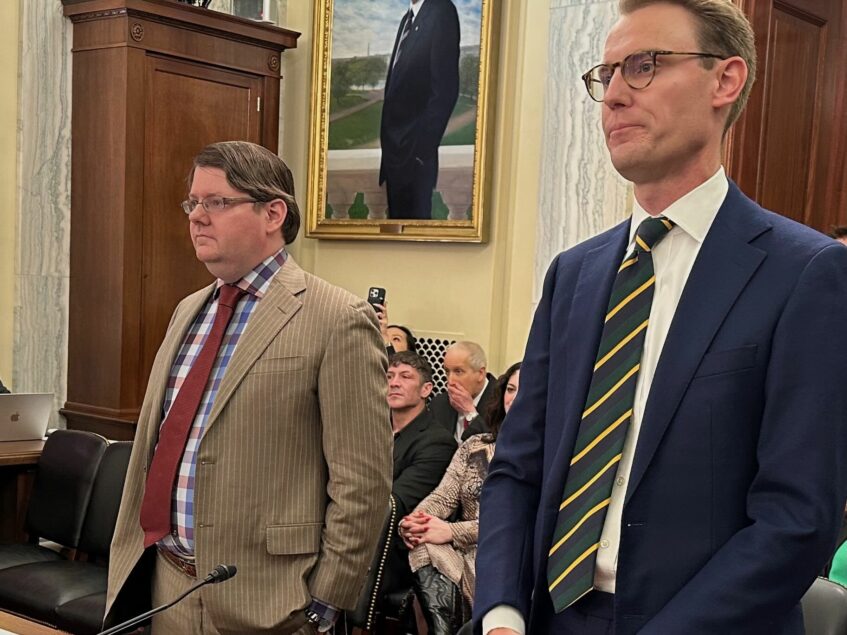Key Takeaways
- Stephen Vaden, Trump’s nominee for deputy agriculture secretary, emphasized the need for strong advocacy for American farmers during tariff negotiations.
- Vaden highlighted the impact of unjustified health and environmental restrictions on U.S. agricultural exports, calling for proactive measures in trade discussions.
- Concerns about the USDA’s reorganization and budget updates for agricultural programs were addressed, with Vaden promising regular communication with Congress.
Advocacy for Farmers during Tariff Discussions
Stephen Vaden, nominated by President Donald Trump to be the deputy secretary of agriculture, assured the Senate Agriculture Committee that the USDA would advocate strongly for American farmers in tariff negotiations. During his confirmation hearing, Vaden stated, “If we’re going to be throwing punches on behalf of America’s economy, there are some punches that need to be thrown on behalf of American farmers, too.” He pointed out that U.S. agricultural exports often encounter unjustified health and environmental restrictions, which he characterized as a form of protectionism.
Vaden urged the USDA to take an active role in promoting American agricultural interests and to work closely with the president’s trade team. He emphasized the importance of opening new markets for U.S. farmers, indicating that the effectiveness of trade policies would ultimately be judged by how many additional markets they create for producers.
Concerns were raised by Senators Mitch McConnell and Amy Klobuchar regarding Trump’s reciprocal tariffs. In response, Vaden underscored the necessity of informing policymakers about the implications of their decisions on rural America and offered suggestions for enhancing support for the agricultural sector.
Vaden’s role as deputy secretary would involve overseeing the USDA’s daily operations. There is an ongoing plan by the Trump administration to downsize the department, though little discussion about this occurred during the hearing. He assured the committee that Congress would be kept informed about any reorganization plans, noting the USDA’s dependence on legislative authority.
Collaboration with Other Agencies
During the hearing, Vaden, who previously served as the USDA’s general counsel, emphasized the importance of collaboration with other agencies on regulations affecting farmers. He committed to advocating for farmers regarding the use of farm chemicals, such as herbicides essential for no-till farming practices. Vaden expressed his intention to work with the Environmental Protection Agency to ensure farmers have necessary tools.
Vaden expressed some support for increasing funding for commodity programs, acknowledging that the current safety net fails to reflect actual production costs. Discussions around enhancing the farm safety net would need to occur through new funding legislation or the ongoing budget reconciliation process.
The committee is also considering Tyler Clarkson’s nomination for general counsel, who served as deputy general counsel during Trump’s first term. Clarkson raised concerns about the Biden administration’s use of the Commodity Credit Corporation (CCC) for various funding programs, indicating that he would not support the previous administration’s approach to using the CCC creatively.
Clarkson highlighted the implications of the Supreme Court’s Loper Bright decision, which restricts agencies’ authority to interpret laws, suggesting that USDA would need to adhere closely to statutory text in future regulations.
Through these discussions, the USDA’s commitment to American agriculture and ongoing cooperation with Congress remains a focal point in shaping agricultural policy. For the latest updates on agriculture news, readers are encouraged to stay informed through dedicated agricultural news platforms.
The content above is a summary. For more details, see the source article.















